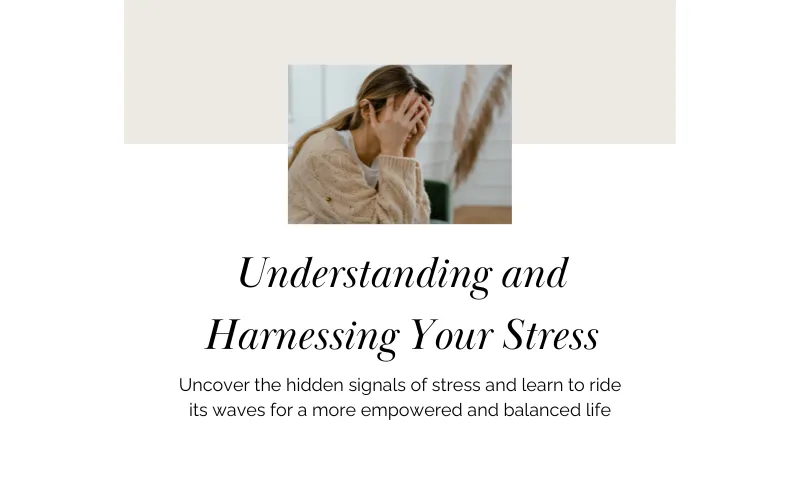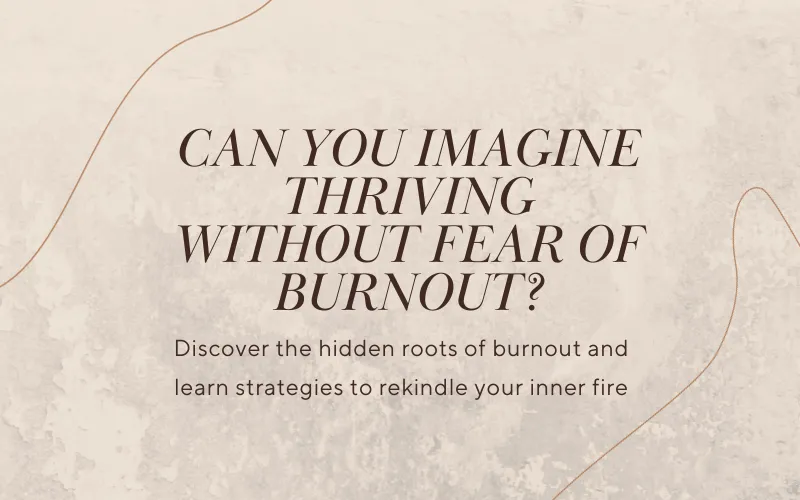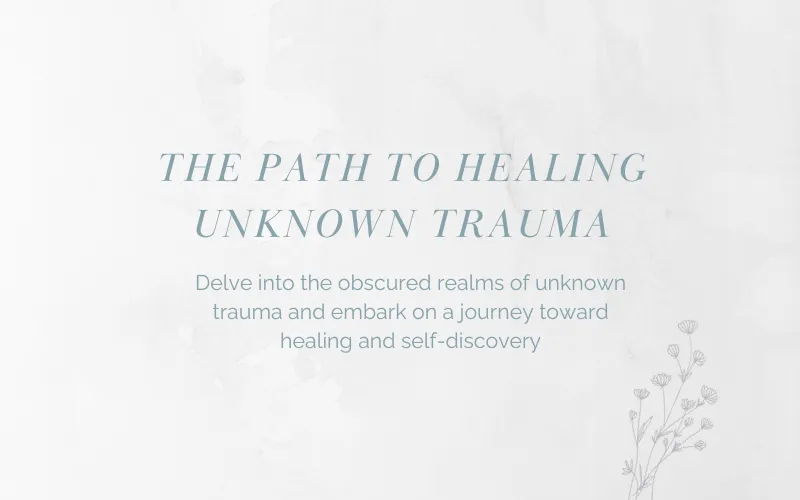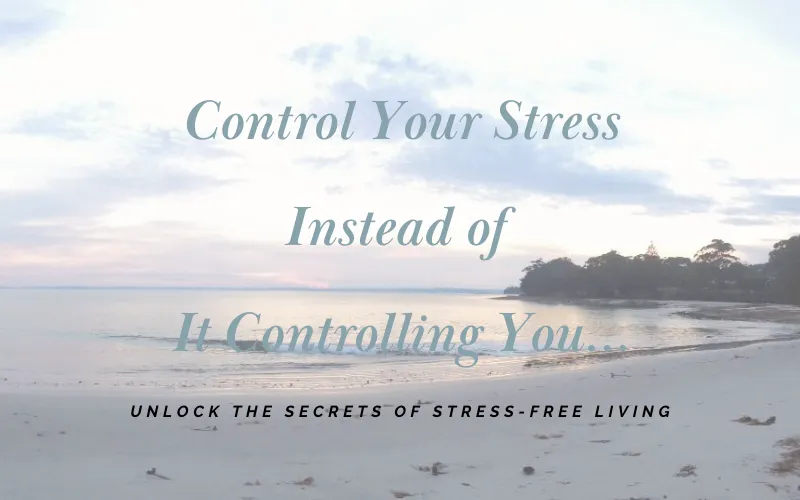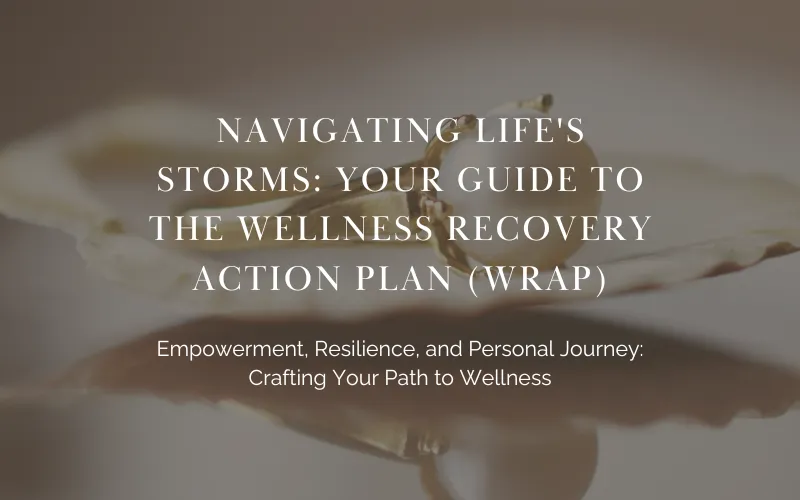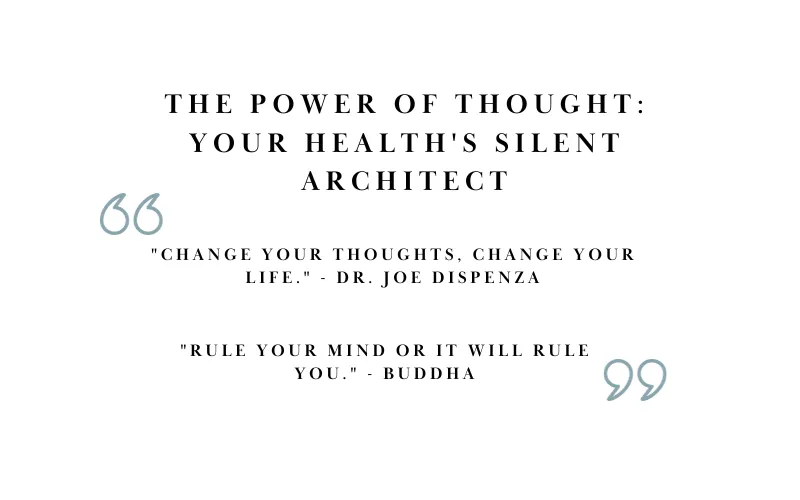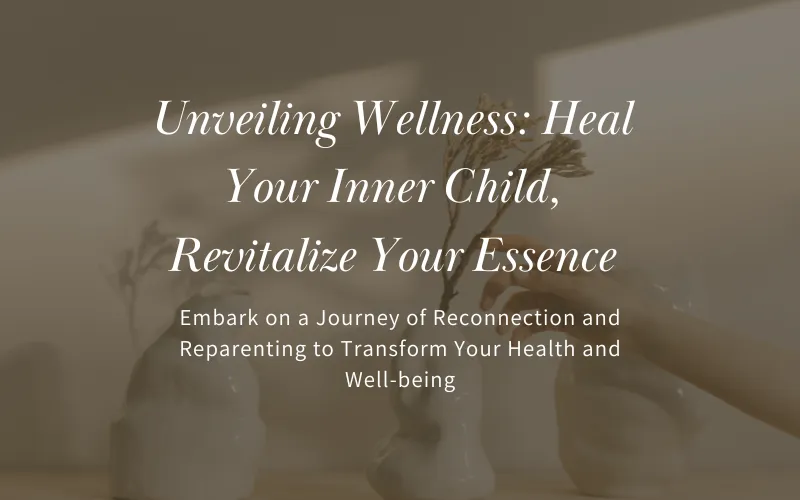Examining the Effects of Unknown Trauma: Understanding the Body's Response

Delve into the obscured realms of unknown trauma and embark on a journey toward healing and self-discovery.
Trauma is a deeply distressing or disturbing experience that can have long-lasting effects on an individual's mental, emotional, and physical well-being. It comes in various forms, such as physical, emotional, or psychological trauma. While some traumas are easily identifiable, there is another type known as unknown trauma that remains hidden and unrecognized. Unknown trauma refers to experiences that have been buried deep within the subconscious mind, making it difficult for individuals to recall or understand the source of their pain and suffering.
The impact of unknown trauma on individuals can be profound. It can affect their relationships, self-esteem, and overall quality of life. The body's response to trauma is complex and can manifest in a variety of ways, including chronic illness, anxiety disorders, depression, and self-sabotaging behaviors.
In this blog post, we will delve deeper into the concept of unknown trauma and its effects on the body and mind. By increasing our understanding and empathy towards those who have experienced unknown trauma, we can create a more supportive environment for healing and recovery.
The Connection Between Unknown Trauma and Chronic Illness
The link between unknown trauma and the development of chronic illness
Unknown trauma can have a significant impact on an individual's physical health, often leading to the development of chronic illnesses. While the connection between trauma and physical health may not be immediately apparent, research has shown that unresolved trauma can manifest as physical symptoms and contribute to the onset or exacerbation of chronic health conditions.
When an individual experiences trauma, their body goes into a state of heightened stress response. This triggers the release of stress hormones like cortisol, which can have detrimental effects on various bodily systems over time. Chronic activation of the stress response can weaken the immune system, disrupt hormonal balance, and impair digestion, among other things.
Unresolved trauma also affects the nervous system, specifically the autonomic nervous system (ANS), which regulates involuntary bodily functions. Trauma can dysregulate the ANS, leading to imbalances in sympathetic (fight-or-flight) and parasympathetic (rest-and-digest) responses. This dysregulation can contribute to chronic inflammation, pain sensitivity, and other physiological disruptions that increase vulnerability to chronic illnesses.
Furthermore, unresolved trauma often leads individuals towards maladaptive coping mechanisms such as unhealthy eating habits, substance abuse, or sedentary lifestyles. These behaviors further contribute to the development and progression of chronic conditions like cardiovascular disease, diabetes, autoimmune disorders, and gastrointestinal issues.
By understanding the link between unknown trauma and chronic illness, we can begin to recognize how our past experiences may be impacting our current health. It highlights the importance of addressing unresolved trauma as part of a holistic approach to healing both mind and body.
Coping Mechanisms for Unknown Trauma: Self-Sabotage, Addictions, and Avoidance
Understanding self-sabotage, addictions, and avoidance as coping mechanisms
When individuals experience unknown trauma, they often develop coping mechanisms to navigate the overwhelming emotions and distress associated with their past experiences. Self-sabotage, addictions, and avoidance are common coping strategies that individuals may employ to protect themselves from the pain of unresolved trauma.
Self-sabotaging behaviors can manifest in various ways. For example, individuals may engage in self-destructive habits such as procrastination, perfectionism, or engaging in toxic relationships. These behaviors serve as a form of self-preservation by creating barriers that prevent them from facing their trauma head-on. By sabotaging their own success or happiness, individuals inadvertently maintain a sense of control over their lives.
Addictive behaviors can also arise as a means of coping with unknown trauma. Substance abuse or dependence on activities like gambling or shopping can provide temporary relief from emotional pain or numbness. However, these addictive behaviors only offer temporary respite and can ultimately exacerbate the negative effects of unresolved trauma on an individual's well-being.
Avoidance is another common coping mechanism employed by those who have experienced unknown trauma. This involves actively avoiding situations, people, or memories that may trigger painful emotions associated with past traumatic experiences. While avoidance may provide immediate relief from distressing thoughts or feelings, it hinders the healing process by preventing individuals from confronting and processing their trauma.
Understanding these coping mechanisms is crucial for both individuals who have experienced unknown trauma and those supporting them. It allows us to approach these behaviors with empathy and compassion rather than judgment. By addressing the underlying trauma and providing healthier coping strategies, individuals can begin to heal and break free from the cycle of self-sabotage, addiction, and avoidance.
The Psychological Repercussions of Unknown Trauma: Anxiety, Depression, and the Inner Critic
The impact of unknown trauma on mental health
Unknown trauma can have profound psychological repercussions, often leading to the development of anxiety disorders, depression, and a harsh inner critic. These mental health challenges are closely intertwined with unresolved trauma and can significantly impact an individual's well-being.
Anxiety disorders are common among individuals who have experienced unknown trauma. The constant state of hypervigilance and fear associated with unresolved trauma can lead to generalized anxiety disorder, panic disorder, or post-traumatic stress disorder (PTSD). Individuals may experience intrusive thoughts, flashbacks, nightmares, and a persistent sense of danger even in non-threatening situations.
Depression is another psychological repercussion that can stem from unknown trauma. Feelings of sadness, hopelessness, and a loss of interest in activities once enjoyed are common symptoms. Unresolved trauma can disrupt brain chemistry and contribute to imbalances in neurotransmitters like serotonin and dopamine, which play crucial roles in mood regulation.
The inner critic refers to the negative self-talk and self-judgment that individuals with unresolved trauma often experience. This critical inner voice perpetuates feelings of shame, guilt, and worthlessness. It stems from internalized beliefs about oneself that were formed as a result of traumatic experiences. Over time, this inner critic can erode self-esteem and hinder personal growth.
Recognizing the impact of unknown trauma on mental health is essential for promoting healing and recovery. It emphasizes the need for therapeutic interventions that address both the underlying trauma and its psychological consequences. By providing support and resources to individuals experiencing anxiety disorders, depression, or a harsh inner critic related to unknown trauma, we can help them regain control over their mental well-being.
Take Control of Your Healing Journey: Discover Your Hidden Strengths
In conclusion, unknown trauma can have profound effects on both the body and mind. It can manifest as physical symptoms and contribute to the development of chronic illnesses. Individuals may also employ coping mechanisms such as self-sabotage, addictions, and avoidance to navigate the pain associated with unresolved trauma. The psychological repercussions of unknown trauma include anxiety disorders, depression, and a harsh inner critic.
To support individuals who have experienced unknown trauma, it is crucial to increase understanding and empathy. By creating a safe space for healing and providing access to appropriate resources, we can help promote their overall well-being. Recognizing the complex interplay between trauma and its effects allows us to approach these individuals with compassion and provide them with the necessary support they need on their journey towards healing.
Are hidden traumas influencing your life more than you know?
It's time to uncover these unseen forces and begin your healing journey. Our Unknown Trauma Quiz is designed to help you identify the hidden traumas that might be lurking in your subconscious, affecting your thoughts, behaviors, and feelings. But it's more than just a quiz; it's your gateway to understanding yourself better and embarking on a path of recovery and self-discovery. Gain insights, strategies, and the courage to face these hidden shadows and transform your life.
Discover the hidden chapters of your story and how they shape your present. The path to healing is a click away.
References:
- "The Body Keeps the Score: Brain, Mind, and Body in the Healing of Trauma" by Bessel van der Kolk M.D.
- "Healing the Fragmented Selves of Trauma Survivors" by Janina Fisher
- "It Didn't Start with You: How Inherited Family Trauma Shapes Who We Are and How to End the Cycle" by Mark Wolynn.


